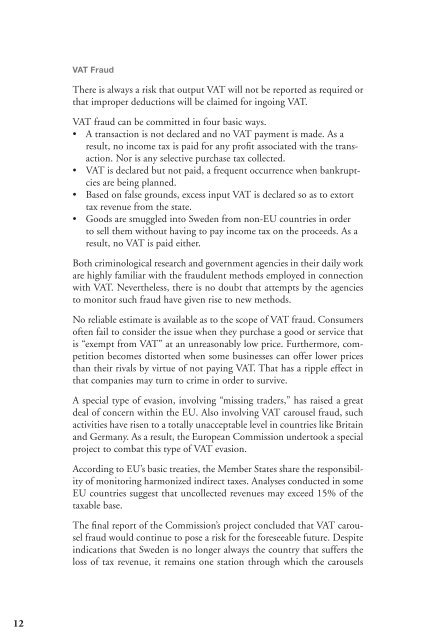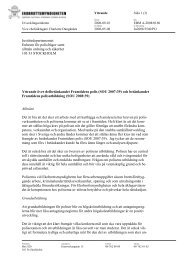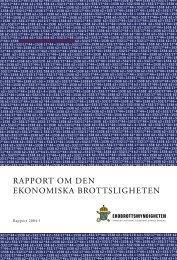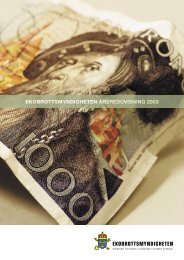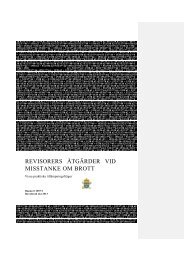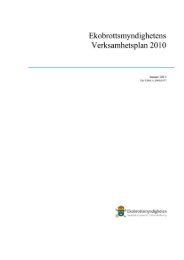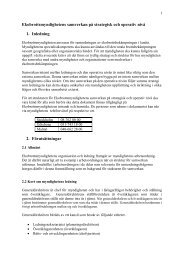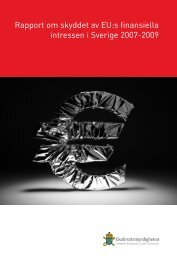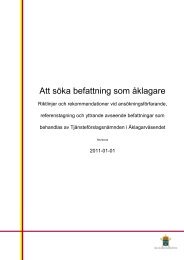Economic crime report 2004 - Ekobrottsmyndigheten
Economic crime report 2004 - Ekobrottsmyndigheten
Economic crime report 2004 - Ekobrottsmyndigheten
You also want an ePaper? Increase the reach of your titles
YUMPU automatically turns print PDFs into web optimized ePapers that Google loves.
VAT Fraud<br />
There is always a risk that output VAT will not be <strong>report</strong>ed as required or<br />
that improper deductions will be claimed for ingoing VAT.<br />
VAT fraud can be committed in four basic ways.<br />
• A transaction is not declared and no VAT payment is made. As a<br />
result, no income tax is paid for any profit associated with the transaction.<br />
Nor is any selective purchase tax collected.<br />
• VAT is declared but not paid, a frequent occurrence when bankruptcies<br />
are being planned.<br />
• Based on false grounds, excess input VAT is declared so as to extort<br />
tax revenue from the state.<br />
• Goods are smuggled into Sweden from non-EU countries in order<br />
to sell them without having to pay income tax on the proceeds. As a<br />
result, no VAT is paid either.<br />
Both criminological research and government agencies in their daily work<br />
are highly familiar with the fraudulent methods employed in connection<br />
with VAT. Nevertheless, there is no doubt that attempts by the agencies<br />
to monitor such fraud have given rise to new methods.<br />
No reliable estimate is available as to the scope of VAT fraud. Consumers<br />
often fail to consider the issue when they purchase a good or service that<br />
is “exempt from VAT” at an unreasonably low price. Furthermore, competition<br />
becomes distorted when some businesses can offer lower prices<br />
than their rivals by virtue of not paying VAT. That has a ripple effect in<br />
that companies may turn to <strong>crime</strong> in order to survive.<br />
A special type of evasion, involving “missing traders,” has raised a great<br />
deal of concern within the EU. Also involving VAT carousel fraud, such<br />
activities have risen to a totally unacceptable level in countries like Britain<br />
and Germany. As a result, the European Commission undertook a special<br />
project to combat this type of VAT evasion.<br />
According to EU’s basic treaties, the Member States share the responsibility<br />
of monitoring harmonized indirect taxes. Analyses conducted in some<br />
EU countries suggest that uncollected revenues may exceed 15% of the<br />
taxable base.<br />
The final <strong>report</strong> of the Commission’s project concluded that VAT carousel<br />
fraud would continue to pose a risk for the foreseeable future. Despite<br />
indications that Sweden is no longer always the country that suffers the<br />
loss of tax revenue, it remains one station through which the carousels<br />
12


